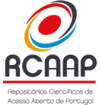Discursive practices of teachers in high school on the digital sphere: changes and experiences during the pandemic in Venezuela
DOI:
https://doi.org/10.21814/h2d.2861Keywords:
discursive practices, digital discursive genres, pedagogical discourseAbstract
The world situation has changed due to the experience of a pandemic resulting from the progressive appearance of the disease COVID-19, which was located with the first identification in Wuhan, in the province of Hubei (People's Republic of China) and extended to European countries until it reached the American continent and with strength to Latin America. Venezuela is a country that has not escaped this reality and has been forced to adjust its different social, economic, political, and educational activities. In the educational context, preventive measures have been taken to transfer teachers from face-to-face class context to a virtual one, despite the fact that many students have a reduced number of technological artifacts and some teachers do not feel prepared to act online and, therefore, they had to adjust their pedagogical discourse to new realities. Therefore, there were changes in materials, spaces, technologies, and practices that do not depend on the intentions of the teachers themselves, but of a world situation, guided by ministerial instructions. This article analyzes the changes in discursive practices on teaching mediated on digital spheres by Venezuelan high school teachers in pandemic times.
Downloads
References
Bakhtin, M. (1999). Estética de la creación verbal (10.ª ed.). Siglo XXI Editores.
Bernstein, B. (1996). A estruturação do discurso pedagógico: classe, códigos e controle (A. D. Paulo, Ed., & T. d. Pereira, Trans.). Editora Vozes.
Certeau, M. (1994). La cultura en plural. Nueva Visión.
Certeau, M. (2000). La invención de lo cotidiano: 1 Artes de hacer (Vol. I). Universidad Iberoamericana.
Certeau, M., Giard, L., & Mayol, P. (1999). La invención de lo cotidiano: 2 habitar, cocinar (1.ª ed.). (A. Pescador, Trans.) Universidad Iberoamericana.
Chartier, R. (1996). Escribir las prácticas. Foucault, De Certeau, Marín. Manantial.
Deleuze, G., & Guattari, F. (1988). Mil Mesetas: Capitalismo y Esquizofrenia. Valencia: Pre-textos.
Foucault, M. (2008). A arqueologia do saber (L. F. Neves, Trans.). Forense Universitária.
Geraldi, J. W. (2010). Sobre a questão do sujeito. In L. de Paula, & G. Stafuzza (Eds.), Círculo de Bakhtin: Teoria inclassificável (pp. 179–292). Mercado de Letras.
Lévy, P. (1999). Cibercultura. Editora 34.
Lévy, P. (2008). As tecnologias da inteligência: O futuro do pensamento na era da informática (C. I. Costa, Trans.). Editorial 34.
Pistori, M. C. (2018). O círculo e os gêneros do discurso. In I. Azevedo (Ed.), Práticas dialógicas de linguagem: Possibilidades para o ensino de língua portuguesa (pp. 17–42). Editus - Editora da UESC.
Swales, J. (1996). Occluded genres in the academy: The case of the submission letter. In E. Ventola, & A. Mauranen (Eds.), Academia writing. Intercultural and textual issues (pp. 45–58). John Benjamins.
van Dijk, T. (2001). El discurso como interacción social. Estudios sobre el discurso. Una introducción multidisciplinaria. Gedisa.
Venezuela (2020). Cada familia una escuela: Plan pedagógico de prevención y protección. Caracas, Distrito Capital, Venezuela: Ministerio del Poder Popular para la Educación. Obtido em 1 de Septiembre de 2020, de http://me.gob.ve/Descargas/PDF/PLANPEDAGOGICOMPPE15MAR.pdf
Downloads
Published
How to Cite
Issue
Section
License
Copyright (c) 2020 H2D|Digital Humanities Journal

This work is licensed under a Creative Commons Attribution 4.0 International License.






